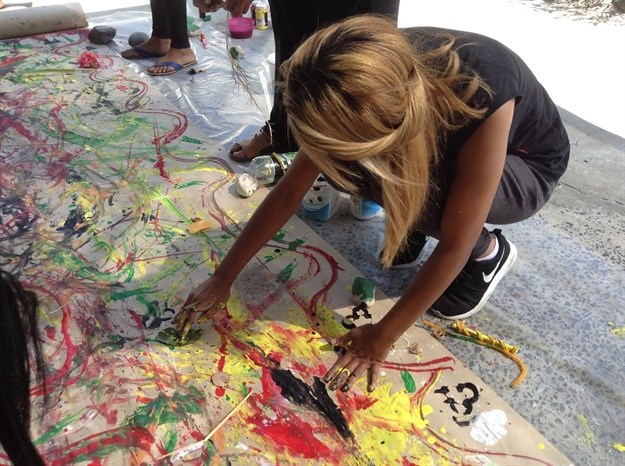
Africa A+ offers professional development and ongoing on-site support that enables the member schools to think, plan and teach more creatively so that children get excited about learning and develop the skills that prepare them for lifelong success. Central to this approach is the integration of the arts, such as drama, dance, music, visual art, drawing and painting into the curriculum and learning process.
CCDI executive director, Erica Elk, says, “We have inherited a country with issues – unemployment, poverty, social inequality and injustice. The generation coming through our schooling system is not adequately prepared to deal with these complex issues. We have to nurture the next generations differently and create a new stream of individuals who are more creative, with greater capacity for innovation, critical thinking and problem-solving to become our future leaders and pioneers.”
Africa A+ Schools support schools in realising the value of nurturing an imaginative and entrepreneurial mind set in children. An entrepreneur is a person who can see and create opportunities where others mostly only see a problem. Children need to be taught from an early age to develop their creativity and imagination so that they can become active citizens who contribute to solving problems and creating new value.
CCDI Early Childhood Development (ECD) project director, Anya Morris, says, “When we look ahead to our children’s future, we do not know what’s in store for them. We can, however, teach them key skills that will help them thrive in times of unpredictability and change.”
According to the Future of Jobs report published by the World Economic Forum in January 2016, an estimated 65% of children, entering primary school today, will ultimately end up working in completely new job types that do not yet exist. The top three skills predicted for 2020 are complex problem solving, critical thinking and creativity. An estimated 36% of all jobs across all industries will require complex problem solving as a core skill.
The Africa A+ Schools network is beginning at the preschool level because the first six years are the most sensitive and critical in human development. Africa A+ offers a quality arts-based learning approach that is aligned with the 0-4 years National Curriculum Framework, upholds the outcomes that underpin the Grade R CAPS curriculum, and works with the whole school in creating a teaching environment that supports each child’s ability to learn and be successful.
The first three Africa A+ member pre-schools in Cape Town are ABC Pre-primary in Lansdowne, iThemba in Capricorn, and Chameleon Campus in Sybrand Park. The three schools have received a week of professional development and are now being supported by the Africa A+ facilitators who are arts practitioners from a range of disciplines and ECD specialists.
Each support activity begins with the arts, which enables the educators to unlock their creativity through music, singing, drama and storytelling, creative movement and dance workshops. The educators and support staff then connect what they had experienced to teaching and learning in the classroom and how each activity supports the curriculum.
In an A+ schoolchildren learn language through drama and play-acting; develop their imagination through movement and storytelling, learn science through drama and visual arts; and are taught about patterning and mathematics through singing and creative movement.
Eight essentials underpin the A+ approach in the US and in South Africa:
World-renowned educationalist, Sir Ken Robinson, who endorses the A+ approach to education, notes, “Creativity is now as important in education as literacy and should be treated as such.”
Watch his TED Talk ‘Do Schools Kill Creativity?’